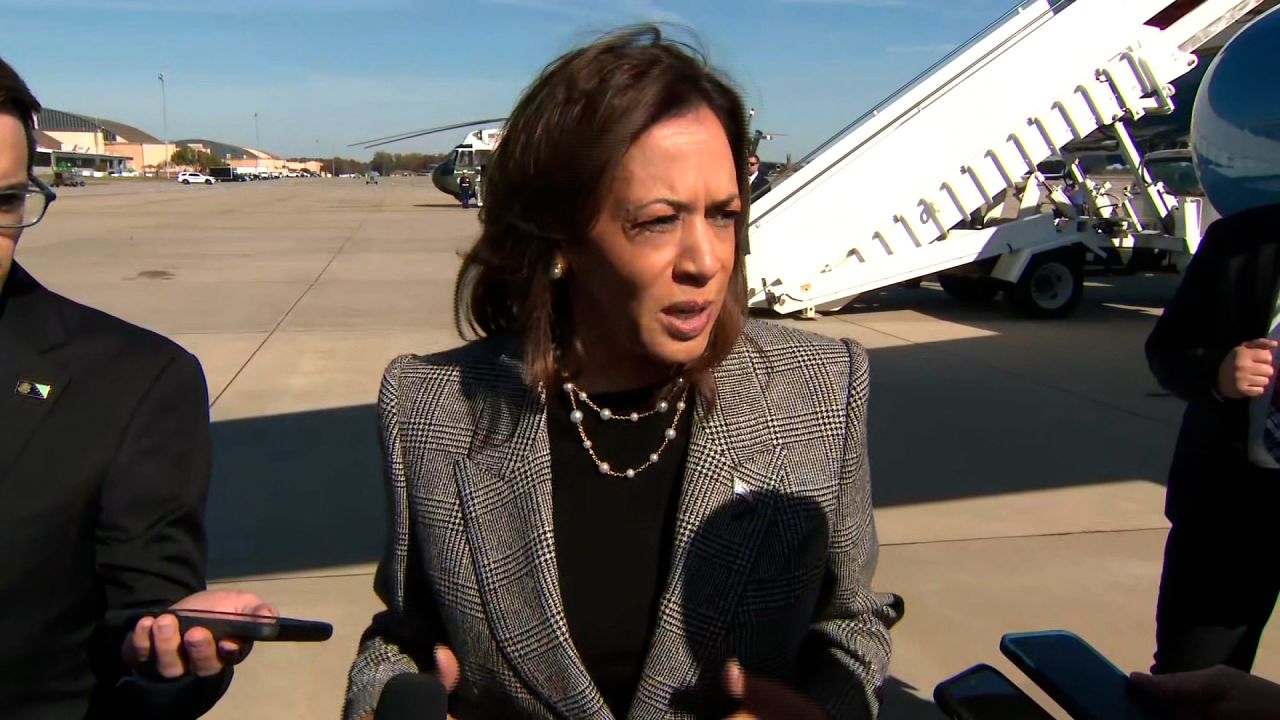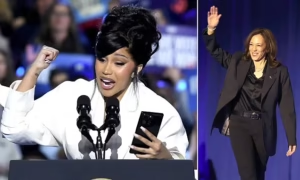
Kamala Harris Aims to Channel Trump’s Chaos at Ellipse Speech – But Can She Ignite Her Own Vision?
On the eve of what some call the most critical juncture in the Biden administration, Vice President Kamala Harris prepares for a bold and potentially risky speech at the Ellipse. Taking the stage at a location marked by political volatility—the same site where former President Donald Trump delivered his infamous rally just before the January 6 Capitol riots—Harris aims to cast Trump’s chaotic legacy in stark contrast with her administration’s vision of stability and growth. Yet as she attempts to hold up Trump as a cautionary tale, she also faces an equally daunting challenge: inspiring a country increasingly skeptical about her own leadership potential.
For Harris, the speech marks a high-stakes moment in a career plagued by mixed reviews. Although she has frequently been celebrated as a “historic” choice, her tenure as vice president has been controversial, and her favorability ratings have hovered near historic lows for modern vice presidents. Many view her as an untested leader, still struggling to carve out a clear national identity. A speech aimed at critiquing Trump may satisfy the Democratic base, but will it offer the decisive stance and compelling vision needed to reassure an electorate wary of politics-as-usual?
Trump’s Shadow Looms Large – But Will the Attack Land?
Harris’s attempt to contrast her approach with Trump’s legacy is understandable. The former president’s divisive tenure, marked by a string of policy controversies and high-profile scandals, continues to haunt the Republican Party. For Harris and her team, the hope is to present Trump as a reminder of past dangers—a figure who, in their view, represents a reckless, self-centered brand of politics America can’t afford to revisit.
However, attacking Trump’s record is a well-worn path that doesn’t guarantee success. By invoking Trump’s rhetoric and policies, Harris risks amplifying his continued influence rather than diminishing it. Additionally, it’s not entirely clear that highlighting Trump’s flaws will do much to elevate Harris’s own image. In fact, voters may come away from the speech with a sense that the Biden-Harris team remains preoccupied with the past, rather than fully committed to shaping the future.
In her address, Harris may attempt to remind listeners of her administration’s accomplishments and hopes for the nation. However, the American public has shown little patience for speeches that dwell on past battles. From inflation concerns to rising geopolitical tensions, many voters are focused on issues that feel much closer to home and are eager for proactive leadership. By framing her speech as a critique of Trump, Harris risks looking reactive rather than proactive—a move that could undermine her credibility at a time when her leadership is under scrutiny.
The Weight of Expectations: Can Harris Deliver Her Own Vision?
Aside from Trump, Harris will also be expected to deliver a message that emphasizes her own aspirations for the country, one that could potentially distinguish her in the lead-up to the next election. But for Harris, this is no easy task. After nearly four years in office, her critics argue that her accomplishments are still vague and hard to pinpoint. High-profile assignments, from immigration reform to voting rights, have often seemed to falter under her watch. This upcoming speech, her team hopes, will be an opportunity for her to define her identity beyond the administration’s shadow.
Yet therein lies a contradiction. By standing at the Ellipse and rehashing Trump’s missteps, Harris’s speech risks becoming a moment of political nostalgia rather than a forward-looking statement of intent. A majority of Americans report that they are disillusioned with the direction of the country; they are weary of ideological battles and skeptical of political promises. To win over an increasingly cynical public, Harris would need to accomplish more than a well-phrased condemnation of her opponent. She would need to offer a plan that feels actionable and authentic—something that speaks to everyday concerns and resonates across partisan divides.
Harris has been billed as a leader with a unique and diverse perspective, someone capable of uniting Americans around common values. But that promise has yet to translate into a compelling public image or an undeniable policy legacy. Her speech at the Ellipse, some suggest, could become her defining moment—a chance to address the nation not as a vice president reacting to her predecessor but as a leader with a clear, independent vision for the future. This, however, is a tall order, and given her record so far, one that many Americans doubt she can fulfill.
Moving Beyond the “Anti-Trump” Message
If Harris’s address focuses solely on Trump, she risks playing into the hands of those who claim she lacks an original voice. Critics have argued that Harris’s leadership thus far has often felt reactive, always positioned as an alternative to something rather than as a definitive choice in her own right. This has been especially pronounced when her role in the administration is compared to that of her predecessors, many of whom worked hard to establish a robust personal agenda. Failing to do so would weaken her case as a credible successor to Biden should the opportunity arise.
Moreover, the 2024 election landscape promises to be fiercely contested. Trump’s base remains fervent, and other GOP candidates are sharpening their platforms. Against this, Harris needs to stand out in a way that goes beyond criticizing her opponents. Recalling Trump’s chaos may be cathartic for some, but it will not necessarily engage the majority of Americans, many of whom feel fatigued by endless political bickering.
What remains clear is that Harris has an opportunity, but also a burden: to deliver a message that connects with voters on a deeper level than mere political rivalry. If she uses the Ellipse speech as a springboard to articulate a clear and inclusive vision for the country, one that people can believe in, she could begin to rewrite her political story. But if she sticks to a safe critique of Trump without offering an alternative path forward, she risks reinforcing the perception that she—and her administration—are out of ideas and out of time.
For Harris, this speech may be her last, best chance to convince a wary public that she represents more than just the absence of chaos. It’s her chance to offer America a promise of something better. Whether she can rise to the occasion, however, remains very much in doubt.






